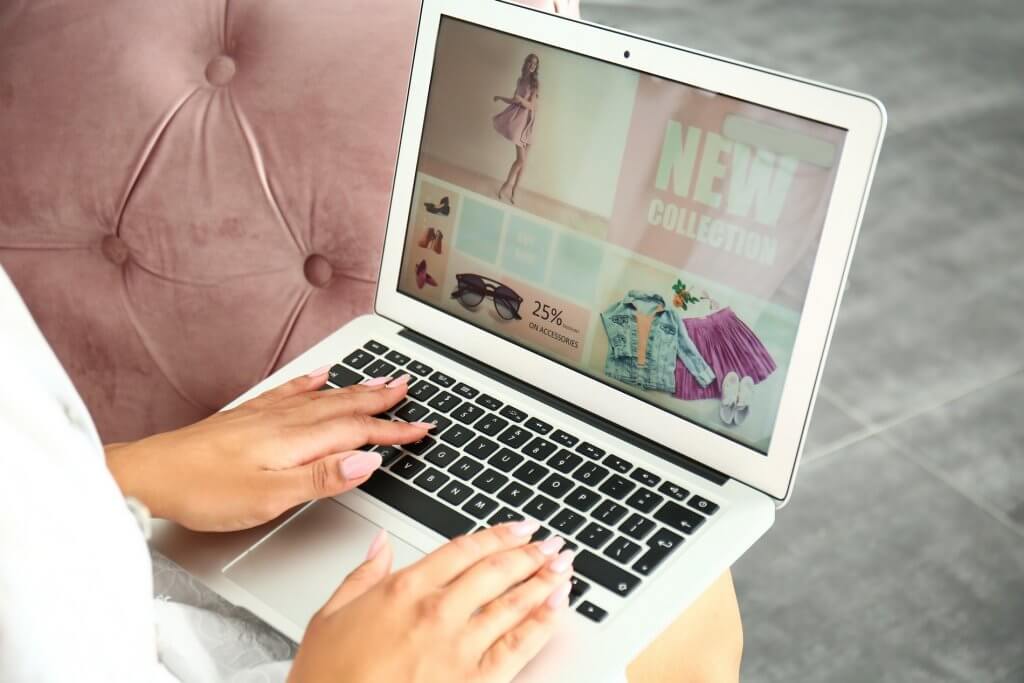Inside: Use these smart strategies to help you stop buying things you don’t need. They’ll help you to simplify and save more money.
Do you want to curb your spending – but can’t seem to help yourself when the urge to buy something new strikes?
Do you find yourself buying things you don’t need, with no plan for what you’ll actually use them for… or where to put them?
The urge to shop is strong, fueled by marketing tactics that attack us from every angle imaginable. From commercials on television to the endless array of online influencers promoting various products, it’s hard to avoid – and for some of us, even harder to fight.
While making that purchase might give you a rush of endorphins and gratification at the moment, chances are you’ll find yourself regretting it later. Instead of dealing with the aftermath, it’s best to stop buying things you don’t need altogether – but how?
If you’re looking for actionable steps you can take to put an end to unnecessary shopping and fight the urge to spend, I’ve got you covered. Read on for strategies and tactics you can embrace to stop buying things you don’t truly need.

How to Stop Buying Things You Don’t Need
To stop buying things you don’t need, you first need to determine what is a want vs a need. The cultural messages say you need a new car, a vacation, to upgrade your home, and much more.
But as you see those advertising ploys for what they are and get better at identifying a true want from a need, it becomes easier to stop buying things you don’t need.
Research into consumer spending has shown that in the US the average person spends $1800 per year on non-essential items. You can drastically reduce that amount by being more intentional with what you buy.
As long as you’re willing to take action and commit, you can leverage some of these ways – or all of them – to limit your spending and focus on the essentials.
1. Make a budget and stick to it.
The first strategy to stop buying things you don’t need is to make a budget. Creating a budget helps you to regain control over your spending.
Budgeting helps you discover where your money has been going and puts you in charge of determining how you want to use your funds.
Do your best to be realistic in creating your budget, but also be willing to make tweaks or adjustments when necessary.
Once you have a workable budget, adjust your spending habits so that you stick to it. Being disciplined will help you to avoid giving in to temptation.

2. Use cash and leave your cards at home.
To help you stay on budget, consider switching to a cash system.
One of the reasons it’s so easy to shop and spend is due to the fact that most of us carry debit and credit cards. The former offers access to our bank account and all of the funds we have – and the latter taps into a dangerous pool of money we don’t actually possess.
Studies have proven that people spend less when paying with cash vs a credit card. And it makes sense. People don’t feel the pain of the money leaving immediately when using a card.
Instead of giving yourself this wildly uncapped power to spend, consider going old-school. Leave your credit and debit cards safely at home and spend cash when you’re out shopping.
By withdrawing a specific amount of money from your account at the start of each week and sticking to that, you can effectively create a budget and avoid unnecessary splurges that don’t fit within it.
If you can’t stand the thought of carrying cash, use just one credit card. Determine in advance of going to a store what you will be buying and how much you can spend and stick to it.

3. Say “no” to online shopping.
In 2024 global e-commerce sales are likely to exceed $7 trillion.
The temptation to splurge when shopping online is dangerously real. Anything you could possibly imagine is available, literally at your fingertips – in your cart and on its way to you with the click of a button and the entry of your payment information.
While online shopping can be a big convenience, the temptation to overspend on things you don’t need can quickly outweigh the benefits.
Stop relying on sheer willpower and take these steps instead to curb online shopping:
- Delete shopping apps from your phone.
- Block yourself from accessing the websites where you’re most tempted to spend. A quick Google search will show you how to block websites in whatever browser you’re using.
- Don’t save your credit or debit card information in your browser or on websites like Amazon. By forcing yourself to physically retrieve your card and enter your information every time, you’ll lessen the ease of online shopping and give yourself a few extra minutes to reconsider.
These tips will help you to be how to be more intentional with shopping so that you can curb mindless online spending.

4. Unsubscribe from marketing emails and texts.
If you’ve ever made a purchase online or signed up for a store’s loyalty program, you’re probably getting at least a few marketing emails every single day.
These emails highlight the latest products and promote “can’t-miss” sales with a singular goal – convince you to shop. And they’re effective.
There are people whose sole jobs are figuring out how to encourage you to open that email, visit the website, and buy whatever it is they’re selling, and they’ve had years – and thousands of pieces of data – to refine their skills.
They use the influence of scarcity and trends to try and convince you that you need to buy now or that you’ll miss out.
By opting out of those emails and texts, you can minimize that highly-targeted pressure to shop and make it easier to stop buying things you don’t need.

5. Give yourself a waiting period before making non-essential purchases.
If you find yourself impulsively purchasing things you don’t need, embracing a waiting period can be a great way to curb some of that behavior.
The idea is simple. Instead of letting yourself buy whatever you want the moment you see it, force yourself to wait at least 48 hours before you make the purchase. Even better – make it three days, or even a week.
By pausing and forcing yourself to exercise a little self-restraint, you give yourself time to think.
Do I really need this – or do I just want this? What value will this add to my life? Would this money be better spent elsewhere – or not at all?
If you still feel strongly about buying whatever it is at the end of your waiting period, make sure it fits within your budget before purchasing. But for many of us, that short wait is all it takes to talk ourselves out of whatever we were tempted to buy.

6. Create customized rules for yourself.
Another great strategy to reduce spending is to create customized rules for yourself. Here are a few that work well.
Ask Yourself Questions First
Make a rule that will ask yourself a list of questions before making any purchase.
Your answers to those questions will help clarify whether the item meets your criteria so that you can quickly eliminate potential purchases that don’t align with your goals.
One-in-One-Out Rule
To effectively cut down on non-essential purchases use the one-in, one-out rule.
If you want to buy something new, that’s fine – but the idea is that you need to use it as an opportunity to replace something you already have.
In some situations, the purchase might make sense. But in others? If you can’t think of anything you want to get rid of, you can more easily talk yourself out of buying whatever it is that you don’t need.
No Buy Rule
Look around your house and pay attention to what things you already have plenty of on hand. Create your own list of things you won’t be purchasing this year and focus on using what you already have.
If you’ve decluttered your home, you may also have noticed items you bought that became clutter. Think about which items don’t get loved and used in your house and stop buying them. Here is my list of 15 things I stopped buying after simplifying.
Your lists don’t have to look the same as mine. Cater it to your unique needs and priorities.

7. Get some support.
When you have a shopping problem it can be challenging to change your behaviors and habits on your own.
If you think you may be addicted to shopping, seeing a therapist or counselor is a great first step.
Having a friend or family member who will keep you accountable can help encourage you to stop buying things you don’t need. You can challenge each other with specific weekly or monthly goals. Schedule regular check-ins to see how you’re both doing.
One of the best strategies to help you stop buying things is avoiding temptation in the first place. So instead of heading to the mall to pass the time, opt for alternative activities to enjoy rather than shopping.
When you have the encouragement and support of the people close to you as you change your habits, it gets easier to stop buying things you don’t need.
What tactics do you use to stop buying things you don’t need? Leave a comment and let me know!
Sign up on the form below to get weekly decluttering tips and inspiration sent straight to your inbox. You’ll also get the free 5 Areas to Declutter in 10 Minutes Checklist to help you get started decluttering today.


I love this post. I sometimes need to buy a couple new things in a row and it throws me into a loop where I want more cool stuff to come in the mail or whatever. It’s a dopamine hit or something so I’ve found that when I want something new and pretty just because I need to give myself a pretty experience outside, a special treat like lunch with a friend or to make something pretty like write or sew or make jewel With stuff I already have to scratch that itch. Sometimes I just watch a favorite movie or have a cup of tea.
I have an impulsive shopping habit. I don’t shop for clothes, I don’t wear jewellery, I don’t have a car, and I don’t do holidays, BECAUSE, I am 75yrs. of age with serious mobility problems so I end up making mistakes on what mobility aids to buy. A walking cane may give me extreme pain in my hands with pressure so I then have to buy another one until I try so many. MY needs have changed. My clutter is likely to be mobility aids. I have packed up all my ornaments of 50-60years in the family and they have gone to a hospice. I have packed up most of my dishes to give to my daughter for her new home and now decluttering on a massive scale so I can give my daughter the furniture she wants and needs for her new home whilst I try to live with less which is my goal. My pans are too heavy so I had to replace them. Then I buy cooking apparatus that cooks quickly and gives me less washing up to do because I cannot stand up for long due to mobility issues and being in pain 24/7, So my impulsive shopping is based on these issues. Trying to keep this under control.
Thank you for providing good info. It would be very helpful in controlling our expenses.
Etsy is my weakness. I love handmade things. I love to support small businesses- especially women owned businesses. It makes me feel to good to make these purchases! But, it often is detrimental to my checkbook and my budget! So, I have to stop letting myself go onto the website, so I don’t tempt myself!